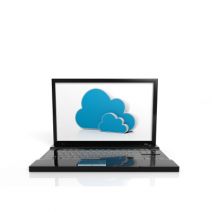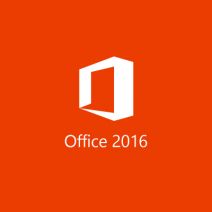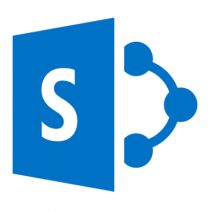 Cloud computing is an important game changer for SMBs, but some organizations are dragging their heels when it comes to implementing this new concept into their computing strategy. One of the biggests reasons why businesses might be hesitant about moving to the cloud is that they might not be certain of what the cloud does.
Cloud computing is an important game changer for SMBs, but some organizations are dragging their heels when it comes to implementing this new concept into their computing strategy. One of the biggests reasons why businesses might be hesitant about moving to the cloud is that they might not be certain of what the cloud does.
Macro Systems Blog
 Mobile devices in the workplace are a complex conundrum that many organizations don’t know how to face properly. On one hand, they allow workers to stay ahead of their schedules, and let them stay productive even when they’re not in the office. On the other hand, they present a serious security risk that needs to be addressed. How does your business handle mobile devices in the workplace?
Mobile devices in the workplace are a complex conundrum that many organizations don’t know how to face properly. On one hand, they allow workers to stay ahead of their schedules, and let them stay productive even when they’re not in the office. On the other hand, they present a serious security risk that needs to be addressed. How does your business handle mobile devices in the workplace?
 How much does your organization spend on cybersecurity every year? It’s a well-known fact that the Internet houses an incredible amount of threats that consistently pose a significant danger to organizations, so it’s expected that businesses will shell out to keep them away. However, large businesses with over 1,000 employees spend an average of approximately $15 million annually to protect their data. Clearly, cybersecurity isn’t a joke, and your business should take it seriously too.
How much does your organization spend on cybersecurity every year? It’s a well-known fact that the Internet houses an incredible amount of threats that consistently pose a significant danger to organizations, so it’s expected that businesses will shell out to keep them away. However, large businesses with over 1,000 employees spend an average of approximately $15 million annually to protect their data. Clearly, cybersecurity isn’t a joke, and your business should take it seriously too.
 One of the most controversial parts of having remote workers is how they access your organization’s network while out of the office. You don’t want them to risk compromising your business’s data, but you also need them to have access to mission-critical applications and information while on the go. Therefore, you need a solution that helps your employees access this information securely without incident, like a virtual private network (VPN).
One of the most controversial parts of having remote workers is how they access your organization’s network while out of the office. You don’t want them to risk compromising your business’s data, but you also need them to have access to mission-critical applications and information while on the go. Therefore, you need a solution that helps your employees access this information securely without incident, like a virtual private network (VPN).
 Does your office still use a fax machine? You know that it’s an outdated piece of equipment, but this fact might not deter its continued use if you don’t care about the latest technology (we admit that not everyone does). Perhaps by taking a look at all the money wasted by using a fax machine, we can convince you otherwise.
Does your office still use a fax machine? You know that it’s an outdated piece of equipment, but this fact might not deter its continued use if you don’t care about the latest technology (we admit that not everyone does). Perhaps by taking a look at all the money wasted by using a fax machine, we can convince you otherwise.
 If you’ve ever tried to work while out of the office on your smartphone or tablet, you’ll have realized that mobile devices aren’t the optimal productivity machine to get the most quality work done. However, if you take advantage of the proper gadgets, you can take back your productivity and continue to get work done, even under the worst circumstances.
If you’ve ever tried to work while out of the office on your smartphone or tablet, you’ll have realized that mobile devices aren’t the optimal productivity machine to get the most quality work done. However, if you take advantage of the proper gadgets, you can take back your productivity and continue to get work done, even under the worst circumstances.
 When it comes to your business’s data security, there can be no room for error. October is Cyber Security Month, so there’s no better time to ensure that your business is taking all of the proper precautions to maximize security protocol. However, there’s an often-forgotten aspect of cybersecurity called employee risk management, and it’s more complex than you might think.
When it comes to your business’s data security, there can be no room for error. October is Cyber Security Month, so there’s no better time to ensure that your business is taking all of the proper precautions to maximize security protocol. However, there’s an often-forgotten aspect of cybersecurity called employee risk management, and it’s more complex than you might think.
 October is Cyber Security month. We want to bring attention to this very important issue affecting every person and organization connected to the Internet. When discussing cyber security, we often talk about computer viruses and malware, but these threats are only part of the cyber security equation. It’s just as important that you, your staff, and even your family, are mindful to not overshare information online that can compromise your organization’s security and personal identities.
October is Cyber Security month. We want to bring attention to this very important issue affecting every person and organization connected to the Internet. When discussing cyber security, we often talk about computer viruses and malware, but these threats are only part of the cyber security equation. It’s just as important that you, your staff, and even your family, are mindful to not overshare information online that can compromise your organization’s security and personal identities.
 How overwhelming is the amount of spam and junk mail you receive on a regular basis? Are you able to effectively navigate your inbox without wasting time on unimportant messages? If you’re a user of Gmail, you now have some tools available to you by default that can help you in the war on spam. You can block specific users and even unsubscribe from email campaigns, allowing you to take back time previously spent cleaning up your inbox.
How overwhelming is the amount of spam and junk mail you receive on a regular basis? Are you able to effectively navigate your inbox without wasting time on unimportant messages? If you’re a user of Gmail, you now have some tools available to you by default that can help you in the war on spam. You can block specific users and even unsubscribe from email campaigns, allowing you to take back time previously spent cleaning up your inbox.
 Just months after releasing their newest operating system, Windows 10, Microsoft is now updating the world’s most popular productivity software. Office 2016 makes several improvements over the Office 2013 versions of Word, Excel, PowerPoint, and the other applications that businesses from all over the world rely on to stay productive. The software, which focuses on making productivity and cooperation possible, has gotten a substantial upgrade in collaborative features.
Just months after releasing their newest operating system, Windows 10, Microsoft is now updating the world’s most popular productivity software. Office 2016 makes several improvements over the Office 2013 versions of Word, Excel, PowerPoint, and the other applications that businesses from all over the world rely on to stay productive. The software, which focuses on making productivity and cooperation possible, has gotten a substantial upgrade in collaborative features.
 It’s a best practice to avoid placing drinks and food near the computer, but for the busy business owner, this practice is often ignored in preference to getting more work done. While it’s typically extremely unhealthy to forsake your lunch break to continue working, some workers might feel that it’s impossible to get all of their work done without doing so. Inevitably, this leads to everyone’s worst nightmare: spilling a drink, most likely coffee or some kind of soda, on your keyboard.
It’s a best practice to avoid placing drinks and food near the computer, but for the busy business owner, this practice is often ignored in preference to getting more work done. While it’s typically extremely unhealthy to forsake your lunch break to continue working, some workers might feel that it’s impossible to get all of their work done without doing so. Inevitably, this leads to everyone’s worst nightmare: spilling a drink, most likely coffee or some kind of soda, on your keyboard.
 It’s been proven that the cloud is ideal for improving the way that organizations just like yours are handling their day-to-day operations, bringing both an increase in profits, net growth, and staff productivity. So, naturally, small businesses are moving in the direction of taking advantage of the cloud for their computing needs.
It’s been proven that the cloud is ideal for improving the way that organizations just like yours are handling their day-to-day operations, bringing both an increase in profits, net growth, and staff productivity. So, naturally, small businesses are moving in the direction of taking advantage of the cloud for their computing needs.
 The social media revolution has taken the world by storm, so much in fact that some people are completely at the mercy of their smartphones. However, the dark side of social media, especially Facebook, grows more apparent every day, especially when it comes to both cybersecurity and personal privacy. Are you sure that your Facebook settings aren’t giving away a little too much of your information to the powers that be?
The social media revolution has taken the world by storm, so much in fact that some people are completely at the mercy of their smartphones. However, the dark side of social media, especially Facebook, grows more apparent every day, especially when it comes to both cybersecurity and personal privacy. Are you sure that your Facebook settings aren’t giving away a little too much of your information to the powers that be?
 In order for an organization to maintain operations, a strong network that’s capable of handling internal traffic is necessary. These networks handle the deployment and access of mission-critical data, applications, and other important tasks that businesses depend on. Sometimes, however, a business can push their network too hard, which can have a profound effect on its functionality, and an even greater effect on that organization’s ability to continue operations.
In order for an organization to maintain operations, a strong network that’s capable of handling internal traffic is necessary. These networks handle the deployment and access of mission-critical data, applications, and other important tasks that businesses depend on. Sometimes, however, a business can push their network too hard, which can have a profound effect on its functionality, and an even greater effect on that organization’s ability to continue operations.
 September 30th is Disaster Preparedness Day. This gives us a great reason to go over some of the most common disasters that can potentially affect your businesses. There are dozens of potential disasters to choose from, but since we’re an IT company, we’re going to focus on the four top disasters that can mess with your company’s IT infrastructure.
September 30th is Disaster Preparedness Day. This gives us a great reason to go over some of the most common disasters that can potentially affect your businesses. There are dozens of potential disasters to choose from, but since we’re an IT company, we’re going to focus on the four top disasters that can mess with your company’s IT infrastructure.
 If there’s one thing that our extremely technical society has evolved into, it’s one where technology is always striving to improve itself. This is especially important for businesses that are looking to maximize the return on investment they get from their hardware and software. Do you know where your organization concentrates its resources for tech upgrades?
If there’s one thing that our extremely technical society has evolved into, it’s one where technology is always striving to improve itself. This is especially important for businesses that are looking to maximize the return on investment they get from their hardware and software. Do you know where your organization concentrates its resources for tech upgrades?
 Have you ever wondered which websites on the Internet are the most dangerous? Recently it’s been discovered that the majority of threatening websites on the Internet fall into some very easy-to-identify categories; or, more specifically, about 95 percent of all dangerous websites are found on ten top-level domains.
Have you ever wondered which websites on the Internet are the most dangerous? Recently it’s been discovered that the majority of threatening websites on the Internet fall into some very easy-to-identify categories; or, more specifically, about 95 percent of all dangerous websites are found on ten top-level domains.
 When searching for tech support for your organization, you might often wonder if what you’re paying for your current service provider is really worth the maintenance that you receive. At times, it might feel like you’re being charged an arm and a leg for a simple network audit, and you can forget about purchasing new hardware components in the event of a technology failure or disaster. Rather than pay for services that are extorting money from you, your budget might find that the price of managed IT services is just right.
When searching for tech support for your organization, you might often wonder if what you’re paying for your current service provider is really worth the maintenance that you receive. At times, it might feel like you’re being charged an arm and a leg for a simple network audit, and you can forget about purchasing new hardware components in the event of a technology failure or disaster. Rather than pay for services that are extorting money from you, your budget might find that the price of managed IT services is just right.
 Anyone who uses the Internet has to be aware of the dangers involved. Beyond the safety of your network’s security solution, there lies a horde of malicious entities just waiting for you to let your guard down. All it takes is one moment to release the floodgate and allow dangerous viruses, malware, or even ransomware, into your network infrastructure. We’re here to make sure that doesn’t happen.
Anyone who uses the Internet has to be aware of the dangers involved. Beyond the safety of your network’s security solution, there lies a horde of malicious entities just waiting for you to let your guard down. All it takes is one moment to release the floodgate and allow dangerous viruses, malware, or even ransomware, into your network infrastructure. We’re here to make sure that doesn’t happen.




